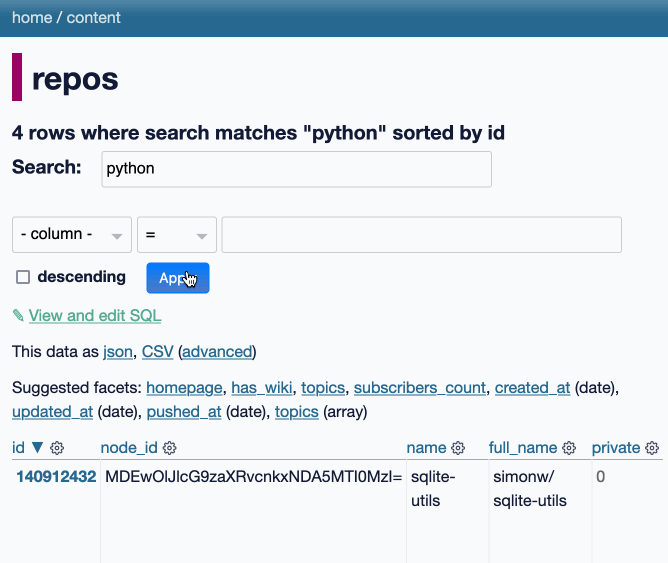Tuesday, 3rd December 2024
Certain names make ChatGPT grind to a halt, and we know why (via) Benj Edwards on the really weird behavior where ChatGPT stops output with an error rather than producing the names David Mayer, Brian Hood, Jonathan Turley, Jonathan Zittrain, David Faber or Guido Scorza.
The OpenAI API is entirely unaffected - this problem affects the consumer ChatGPT apps only.
It turns out many of those names are examples of individuals who have complained about being defamed by ChatGPT in the last. Brian Hood is the Australian mayor who was a victim of lurid ChatGPT hallucinations back in March 2023, and settled with OpenAI out of court.
Finally, in most workplaces, incentive structures don’t exist for people to (a) reduce their workloads to such an extent that their role becomes vulnerable or (b) voluntarily accept more responsibility without also taking on more pay.
These things are all natural rate limiters on technology adoption and the precise mix they show up in varies from workplace to workplace as every team has its own culture and ways of working. And regardless of what your friendly neighbourhood management consulting firm will tell you, there’s no one singular set of mitigations to get around this – technology will work best in your workplace if it’s rolled out in tune with existing culture, routines, and ways of working.
— Rachel Coldicutt, FOMO is not a strategy
Introducing Amazon Aurora DSQL (via) New, weird-shaped database from AWS. It's (loosely) PostgreSQL compatible, claims "virtually unlimited scale" and can be set up as a single-region cluster or as a multi-region setup that somehow supports concurrent reads and writes across all regions. I'm hoping they publish technical details on how that works at some point in the future (update: they did), right now they just say this:
When you create a multi-Region cluster, Aurora DSQL creates another cluster in a different Region and links them together. Adding linked Regions makes sure that all changes from committed transactions are replicated to the other linked Regions. Each linked cluster has a Regional endpoint, and Aurora DSQL synchronously replicates writes across Regions, enabling strongly consistent reads and writes from any linked cluster.
Here's the list of unsupported PostgreSQL features - most notably views, triggers, sequences, foreign keys and extensions. A single transaction can also modify only up to 10,000 rows.
No pricing information yet (it's in a free preview) but it looks like this one may be true scale-to-zero, unlike some of their other recent "serverless" products - Amazon Aurora Serverless v2 has a baseline charge no matter how heavily you are using it. (Update: apparently that changed on 20th November 2024 when they introduced an option to automatically pause a v2 serverless instance, which then "takes less than 15 seconds to resume".)
Open source is really part of my process of getting unstuck, learning and contributing back to the community, and also helping future me have an easier time. ‘Me’ is probably the number one beneficiary of my open-source software work. To be honest with you, a lot of it is selfish. It's really about making me more productive, happier, and less stressed. For people who wonder why we should do open source, I think that they should consider that they themselves may benefit more than they realize.
One big thing that a lot of people love to do is create new role types. For any new thing a company wants to do, the tendency is to put up a new job description.
I think a lot of people notice this and chafe at it when the role is for the new hotness. For example, every company wants to rub some AI on their stuff now, so they are putting up job descriptions for AI engineers.
If you’re an engineer interested in AI sitting in such a company, you’re annoyed that they’re doing this (and potentially paying that person more than you) when you could easily rub some AI on some stuff.
— Dan McKinley, Egoless Engineering
Transferring Python Build Standalone Stewardship to Astral. Gregory Szorc's Python Standalone Builds have been quietly running an increasing portion of the Python ecosystem for a few years now, but really accelerated in importance when uv started using them for new Python installations managed by that tool. The releases (shipped via GitHub) have now been downloaded over 70 million times, 50 million of those since uv's initial release in March of this year.
uv maintainers Astral have been helping out with PSB maintenance for a while:
When I told Charlie I could use assistance supporting PBS, Astral employees started contributing to the project. They have built out various functionality, including Python 3.13 support (including free-threaded builds), turnkey automated release publishing, and debug symbol stripped builds to further reduce the download/install size. Multiple Astral employees now have GitHub permissions to approve/merge PRs and publish releases. All releases since April have been performed by Astral employees.
As-of December 17th Gregory will be transferring the project to the Astral organization, while staying on as a maintainer and advisor. Here's Astral's post about this: A new home for python-build-standalone.
datasette-queries. I released the first alpha of a new plugin to replace the crusty old datasette-saved-queries. This one adds a new UI element to the top of the query results page with an expandable form for saving the query as a new canned query:

It's my first plugin to depend on LLM and datasette-llm-usage - it uses GPT-4o mini to power an optional "Suggest title and description" button, labeled with the becoming-standard ✨ sparkles emoji to indicate an LLM-powered feature.
I intend to expand this to work across multiple models as I continue to iterate on llm-datasette-usage to better support those kinds of patterns.
For the moment though each suggested title and description call costs about 250 input tokens and 50 output tokens, which against GPT-4o mini adds up to 0.0067 cents.